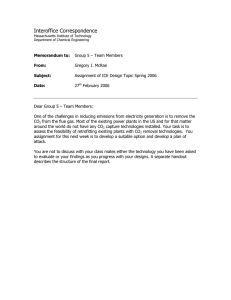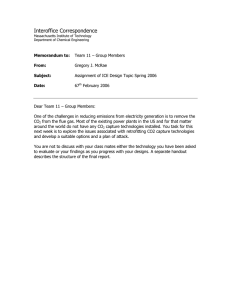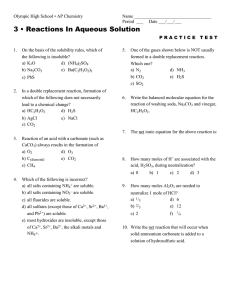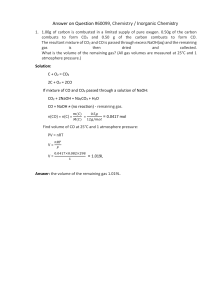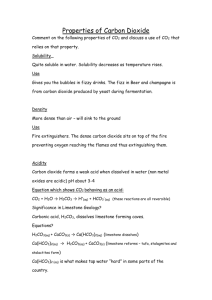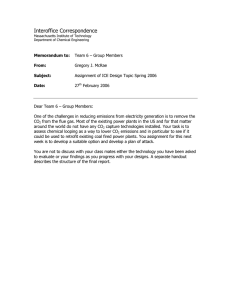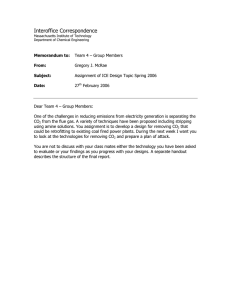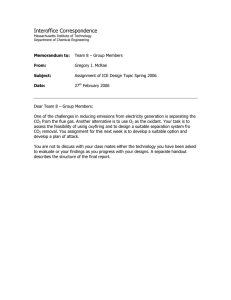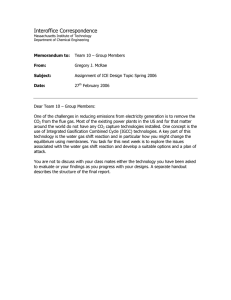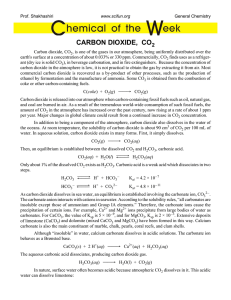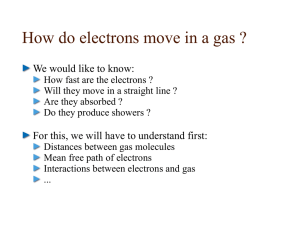Biology 155 – Quiz 2 ions in water is
advertisement
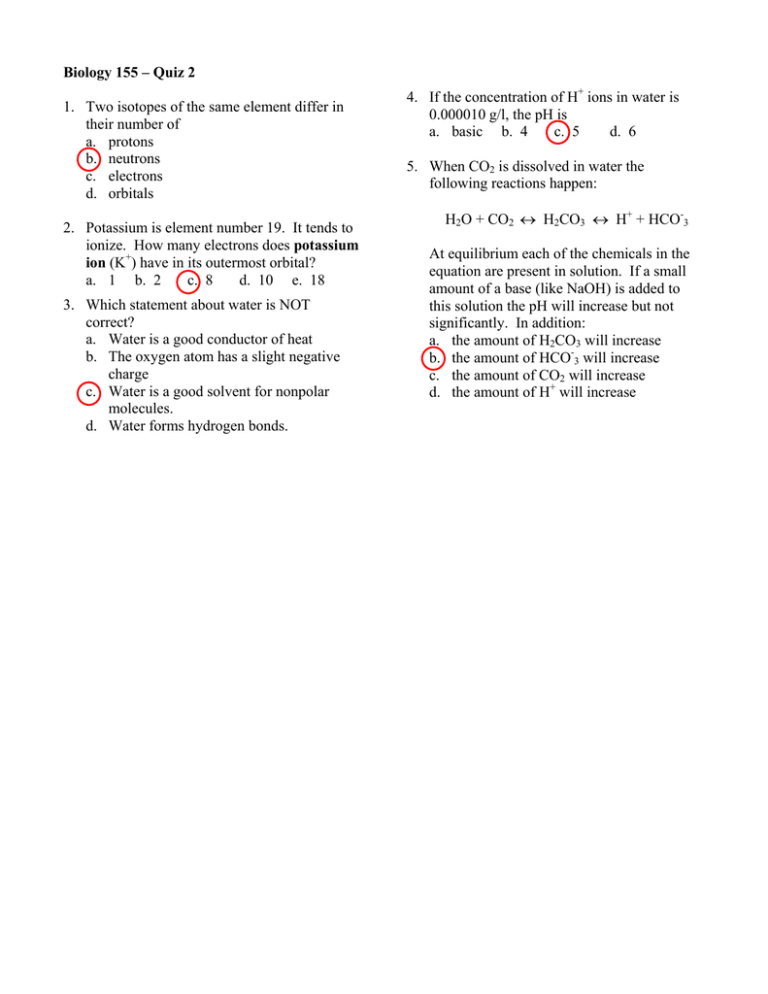
Biology 155 – Quiz 2 1. Two isotopes of the same element differ in their number of a. protons b. neutrons c. electrons d. orbitals 2. Potassium is element number 19. It tends to ionize. How many electrons does potassium ion (K+) have in its outermost orbital? a. 1 b. 2 c. 8 d. 10 e. 18 3. Which statement about water is NOT correct? a. Water is a good conductor of heat b. The oxygen atom has a slight negative charge c. Water is a good solvent for nonpolar molecules. d. Water forms hydrogen bonds. 4. If the concentration of H+ ions in water is 0.000010 g/l, the pH is a. basic b. 4 c. 5 d. 6 5. When CO2 is dissolved in water the following reactions happen: H2O + CO2 ↔ H2CO3 ↔ H+ + HCO-3 At equilibrium each of the chemicals in the equation are present in solution. If a small amount of a base (like NaOH) is added to this solution the pH will increase but not significantly. In addition: a. the amount of H2CO3 will increase b. the amount of HCO-3 will increase c. the amount of CO2 will increase d. the amount of H+ will increase
